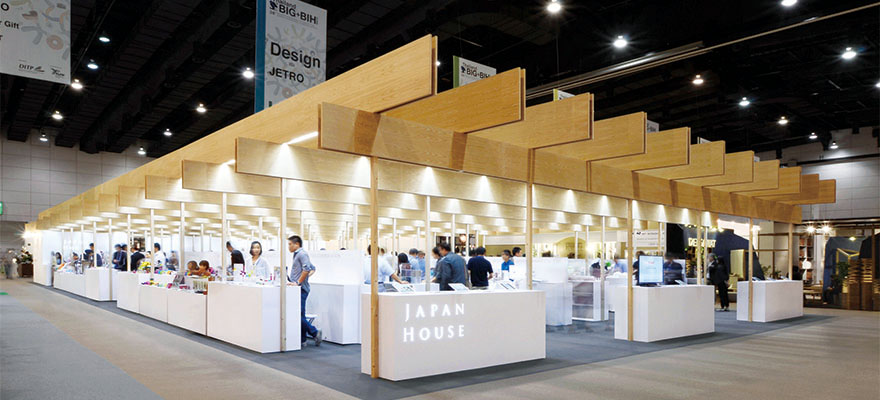Home > Highlighting JAPAN >Highlighting Japan December 2013>Japan's technological achievements
Highlighting JAPAN
Japan's technological achievements
JETRO Caravans
Japanese Goods Make Inroads Abroad

While Japan has long been known as a world-class exporter of cars, stereo equipment, computer chips and intricate technology, now curtains, kitchenware and toothbrushes are joining in on
the party.
In the last four years, the Japan External Trade Organization, or JETRO, has implemented annual Caravan projects in an effort to support small and medium Japanese enterprises in expanding trade overseas.
Caravan is made up of two projects: Asia Caravan, which focuses primarily on expansion in the Chinese market, and ASEAN Caravan, which in recent years has successfully targeted Malaysia, Thailand, Indonesia and Singapore.
Now in the fourth year of Asia Caravan and second year of ASEAN Caravan, participating companies hail from the kitchenware, health and beauty, home interior and building material sectors. Approximately 140 companies participate in the two projects, with roughly 10 involved in both.
"We concentrated on entering these markets because economies in these countries are booming," explains Manabu Shimoyashiro, director of the ASEAN Caravan Project. "But it can be hard for small and medium Japanese enterprises to develop the skills and experience needed to effectively enter these foreign markets. So we at JETRO want to support them through the opportunities made available by the Caravan Project."
Japanese products have a strong international reputation for quality, safety, high functionality and superior design. Though similar products are often available in the target nations, Japanese value-added details can make everyday products extraordinary, with growing youth populations and expanding middle- and upper-class communities driving demand.
Overseas expansion brings with it a raft of challenges, including language barriers, knowledge of laws and regulations, differences in business styles and negotiation tactics, as well as the simple difficulty of following local market trends. JETRO's Caravan projects offer assistance in these areas, providing access to information, training and publicity events.
The Asia Caravan organizes large business exchanges centered in Shanghai, Beijing, Chongqing, Guangzhou and Taipei to introduce Japanese companies to local markets. Each company sends representatives to manage a booth, and has the opportunity to meet potential buyers and other industry professionals. Meanwhile, lively ASEAN Caravan events earlier this year in Singapore and Bangkok had industry insiders perusing a wide variety of projects while watching demonstrations prepared with JETRO's assistance.
Expansion is never a sure thing, and there is always risk involved. But Caravan seeks to mitigate that risk by providing information on local markets and aiding in negotiations that will crack the door for would-be exporters. According to Takao Moriuma of Asia Caravan's lifestyle and service industry division, "We have a lot of products out there that people know, electronics and such, but there are still many fantastic products that have yet to leave Japan."
Sometimes the goods that become runaway hits come as a complete surprise. For example, while curtains are widely available almost everywhere, a curtain company offering products with a little extra oomph – such as fireproof, blackout or insulating capabilities – proved to be unexpectedly popular. Says Shimoyashiro: "For the young generation, we have to say that the most popular products are those associated with music, anime and subculture. The older generation likes electronic and automotive goods as well as Japanese food." Adds Moriuma, "Young people like things that are fashionable, well-designed or kawaii (cute)."
JETRO plans to continue the Caravan projects beyond this year, with the hope of including other ASEAN nations in the future. Shimoyashiro notes: "When more and more people learn about Japan – our cuisine, our lifestyle products, and so on – it allows people in Asia to feel closer and friendlier toward Japan. That's something we'd like to maintain."
Bonding over high-tech products and down-home kitchenware – not a bad idea!
© 2009 Cabinet Office, Government of Japan






